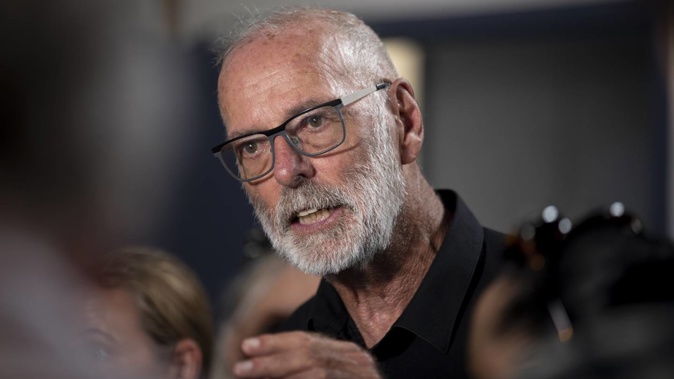
- Auckland Mayor Wayne Brown proposes stripping Auckland Transport of its planning, strategy and policy roles.
- Brown plans to abolish Panuku Development and reduce roles of Tataki Development Auckland.
- The proposals aim to reform council-controlled organisations for better governance and efficiency.
Auckland Mayor Wayne Brown is proposing to strip Auckland Transport of its planning, strategy and policy roles, his draft budget proposal, released this morning, reveals.
He also plans to abolish the council’s urban regeneration agency Panuku Development and reduce the roles of the council’s economic development and regional facilities agency Tataki Development Auckland (TAU).
The proposals are the biggest shake-up of the council-controlled organisations (CCOs) since the Super City was formed in 2010.
“I was clear when I ran for mayor that I would take back control of council organisations and make them democratically accountable. Aucklanders voted for CCO reform, and they expect us to get on with the job,” Brown said.
“We need to make structural and cultural change to remove inefficiencies, poorly aligned strategies and strengthen democratic accountability.”
In the draft budget proposal, the mayor acknowledged the CCOs have been delivering critical and important services, but ongoing tinkering has not resulted in the level of change required.
“It is clear that if we want to address the challenges embedded within the CCO model to deliver what Aucklanders expect, we must change the system itself.
Auckland Transport will lose a lot of its functions under Wayne Brown's proposals. Photo / Michael Craig
“What it doesn’t mean is changing our levels of service or investment or using this as a mechanism to ‘slash and burn’,” he said.
On AT, which Brown has said “must be the most loathed organisation in council”, he supports, “in principle”, a full reset bringing all transport policy, strategy and planning function back to the council.
- Transport Minister in advanced talks with Mayor Brown to ‘reform’ Auckland Transport
- AT on the chopping block in bold plan by Mayor Wayne Brown
The “in principle” reference is because Transport Minister Simeon Brown still has to give the green light to repeal or change legislation that makes AT a statutory body and independent from the council.
Last week, Simeon Brown told the Herald he and the mayor both recognise that AT needs reform and share concerns that its decision-making has not adequately reflected Aucklanders’ views or responded effectively to their needs for moving efficiently around the city.
 Transport Minister Simeon Brown has not given the green light yet to Mayor Wayne Brown's proposals. Photos / Michael Craig, NZME
Transport Minister Simeon Brown has not given the green light yet to Mayor Wayne Brown's proposals. Photos / Michael Craig, NZME
The minister said he had had several meetings with the mayor about potential reforms to make AT more responsive to the needs and views of Aucklanders, and the pair will have more to share once discussions progress and decisions are made.
In his budget proposals, Brown has not gone as far as options to abolish AT or add transport services like roads, footpaths, parking and cycling to the functions under council control.
But he has proposed that the council takes responsibility for back-office functions including communications, marketing, legal and finance; and reverse existing delegations from the council to AT, including rules around street trading and the Harbourmaster.
Brown said abolishing Panuku and bringing its urban regeneration and property management roles in-house will bring better alignment and integration with other growth-related activities.
“Auckland Council is already responsible for urban regeneration through planning and regulation of land use,” he said.
“Eke Panuku’s involvement in urban regeneration has led to duplication and confusion around the accountability of projects.
“My proposal will enable local boards to have greater decision-making power over local urban regeneration so there is a more community-focused approach to local placemaking,” Mayor Brown said.
“Panuku’s role as ‘lead agency’ co-ordinating between Auckland Council and other CCOs adds a layer of complexity to the delivery of small-scale projects and has led to duplication.
“Similarly, while the commercial focus of Eke Panuku has supported property management and the sale of assets, the model itself embeds inefficiencies with the approval process for disposals,” the mayor said.
Wayne Brown has also proposed taking the functions of economic development, major events and destination activities off TAU, and retaining its trust structure to manage regional facilities, including Auckland Zoo and the Auckland Art Gallery, theatres and stadiums.
Tataki Auckland Unlimited will retain facilities, like Auckland Zoo. Photo / Brett Phibbs
He said the council’s main lever for economic development is planning for land use and infrastructure to support future growth.
“The proposed changes will integrate other economic development activities, like support for targeted industries and investment attraction, with the council’s broader role in growing the regional economy.
“The main focus of economic development must be on using our planning tools to lift regional productivity so that all Aucklanders can enjoy a higher standard of living.
“There is a fine line between public good and private benefit when it comes to targeted industry support for things like film and tourism.
“I believe these activities need greater democratic accountability and scrutiny to determine the role they play in Auckland’s growth,” the mayor said.
Councillors will make decisions on the mayor’s proposed CCO reform in early December. Public consultation on the draft budget will occur in about March before final decisions are taken and any CCO changes come into effect on July 1 next year.
The draft budget proposes a rates increase of 5.8 per cent for households.
Take your Radio, Podcasts and Music with you









